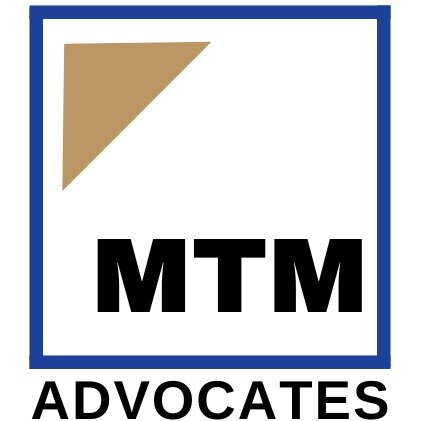Best Asylum Lawyers in Ruaka
Share your needs with us, get contacted by law firms.
Free. Takes 2 min.
List of the best lawyers in Ruaka, Kenya
About Asylum Law in Ruaka, Kenya
Asylum law in Ruaka, Kenya, is primarily governed by the larger legal framework of the Kenyan government, as there is no separate asylum law for specific regions within the country. Kenya is a signatory to the 1951 United Nations Refugee Convention and its 1967 Protocol, as well as the 1969 OAU Convention Governing the Specific Aspects of Refugee Problems in Africa. These Conventions guide Kenya's obligations to protect refugees and those seeking asylum. The Refugee Act of 2006 and its subsequent amendments further outline the procedures and rights related to asylum seekers in Kenya.
Why You May Need a Lawyer
Legal representation or advice could be crucial in various situations for asylum seekers in Ruaka. Understanding complex legal procedures, filling in paperwork correctly, challenging denials of asylum applications, and representing your case to the Department of Refugee Affairs can be overwhelming without professional assistance. Lawyers can help ensure that you do not become a victim to missed opportunities for appeal, improper filings, or language barriers that impede understanding of your legal rights.
Local Laws Overview
Key aspects of local laws regarding asylum include the right to apply for refugee status upon arriving in Kenya, following the procedure laid out in the Refugee Act. The Act also stipulates provisions about non-refoulement, meaning individuals cannot be returned to a country where they face serious threats to their life or freedom. The Refugee Affairs Secretariat (RAS) is the body responsible for managing refugee affairs, including the processing of asylum applications. Urban refugees, like those in Ruaka, face specific regulations regarding their residence and work rights in Kenya, so awareness of the latest policy adjustments is important.
Frequently Asked Questions
How do I apply for asylum in Ruaka, Kenya?
Upon arrival, you should immediately contact the Refugee Affairs Secretariat (RAS) to register as an asylum seeker. Your application process will begin thereafter.
What documents do I need to apply for asylum?
You will need identity documents, any proof of your claimed persecution, and, if applicable, similar documents for your spouse and children.
Can I work while my asylum application is being processed?
With a valid asylum-seeker pass, you may be eligible to work. However, you should seek clear guidance from RAS or legal counsel due to frequently changing regulations.
What if my application for asylum is denied?
You have the right to appeal the decision within the timeframe mentioned in the denial notification, typically 30 days.
Can I bring my family to Ruaka after I am granted asylum?
Family reunification rights can be a complex issue and depend on the specifics of your case. A lawyer can provide specific advice on this matter.
How long does the asylum process take in Kenya?
The duration can vary greatly depending on the case complexity and backlog of applications. It's essential to regularly check on your case status.
Is it possible to receive government assistance while waiting for my asylum claim?
Government assistance is limited, but some international organizations provide support to asylum seekers in terms of basic needs and services.
Can I study in Kenya if I am an asylum seeker?
Asylum seekers are allowed to access education; however, the process may require assistance to navigate any administrative barriers.
What should I do if I face discrimination or harassment as an asylum seeker?
Report any incidents to the police and also inform your legal representative and the RAS.
Who can I contact if I have more questions about my rights as an asylum seeker?
You should contact RAS, a legal professional, or a recognized non-government organization that specializes in refugee and asylum rights.
Additional Resources
For additional support and resources, asylum seekers can reach out to UNHCR Kenya, the Refugee Affairs Secretariat (RAS), and various non-governmental organizations such as the Refugee Consortium of Kenya (RCK) and HIAS Kenya, which work closely with refugees and asylum seekers by providing legal aid, counseling, and essential services.
Next Steps
If you need legal assistance with your asylum application or situation, the first step is to document your case thoroughly, with all relevant evidence and information at hand. Afterwards, seek a lawyer who specializes in refugee and asylum law. They will be able to advise you on your rights, the necessary procedure, and any appeals process if needed. Remember to stay informed of any changes in regulations affecting refugees in Kenya, as these can directly impact your status and rights.
Lawzana helps you find the best lawyers and law firms in Ruaka through a curated and pre-screened list of qualified legal professionals. Our platform offers rankings and detailed profiles of attorneys and law firms, allowing you to compare based on practice areas, including Asylum, experience, and client feedback.
Each profile includes a description of the firm's areas of practice, client reviews, team members and partners, year of establishment, spoken languages, office locations, contact information, social media presence, and any published articles or resources. Most firms on our platform speak English and are experienced in both local and international legal matters.
Get a quote from top-rated law firms in Ruaka, Kenya — quickly, securely, and without unnecessary hassle.
Disclaimer:
The information provided on this page is for general informational purposes only and does not constitute legal advice. While we strive to ensure the accuracy and relevance of the content, legal information may change over time, and interpretations of the law can vary. You should always consult with a qualified legal professional for advice specific to your situation.
We disclaim all liability for actions taken or not taken based on the content of this page. If you believe any information is incorrect or outdated, please contact us, and we will review and update it where appropriate.








